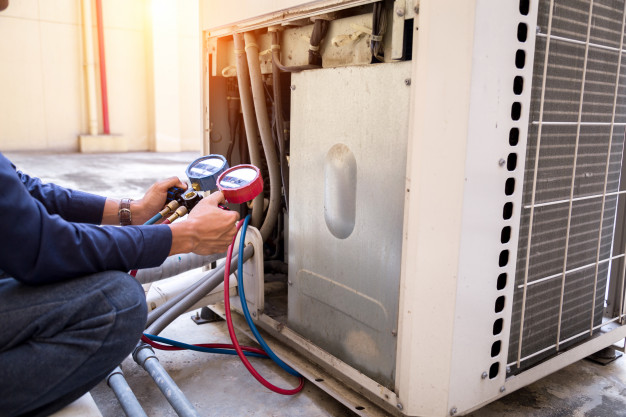Selecting the right HVAC solution for your residence can feel challenging, particularly due to the numerous choices and technical details to consider. Whether you are building a brand new house, remodeling, or just looking to enhance your existing system, grasping the meaning of HVAC and its operation is vital. HVAC stands for temperature control, ventilation, and air conditioning, and it has a key role in maintaining a comfortable environment in your home year-round. This beginner's guide will navigate you through the main elements of HVAC systems, common problems and their solutions, and care advice to maintain your system effectively.
As you investigate the various types of HVAC systems on the market, you will notice that they each feature unique features and benefits. From conventional central air systems to modern ductless mini-splits and geothermal heat pumps, the choices can be overwhelming. Understanding how different systems impact energy efficiency and indoor air quality can help you make a knowledgeable choice that addresses your comfort needs but also suits your financial plan. By the end of this article, you will be equipped with essential insights to select the ideal HVAC solution for your residence and have a comfortable living environment year-round. spintax ### Comprehending HVAC Systems
HVAC refers to Heating, Air Flow, and Air Conditioning, which are core components responsible for maintaining indoor comfort. An HVAC system controls heat, humidity, and air quality within home and business spaces. Understanding each of these components is essential for selecting the right system for your residential space or commercial entity. Heating systems involves various techniques to warm indoor areas, while air conditioning lowers the temperature of and reduces humidity in the air. Breathing systems provides a continuous flow of new air to create a healthy setting.
An HVAC system usually is made up of a heater or heat pump for heating, an cooling system for temperature reduction, and ductwork or alternative means of spreading conditioned air throughout the space. Modern systems might also include intelligent thermostats, air cleaners, and moisture management features, which enhance both ease and energy conservation. By improving these components, residents can create a comfortable living space while minimizing electricity use.
Moreover, understanding the interplay of these components can assist in troubleshooting frequent issues and making wise decisions about upkeep and improvements. Regular maintenance and timely repairs are vital to prolonging the lifespan of an HVAC system. As technology progresses, upcoming innovations emerging within the HVAC field promise enhanced energy efficiency and better indoor air quality, which benefit health and satisfaction in houses and business spaces as well.
Typical HVAC Problems and Resolutions
One of the typical issues householders face with their HVAC units is poor heating or cooling. This problem can arise from multiple sources, including a filthy air filtor, which limits airflow and reduces efficiency. A different potential cause is improperly sealed ductwork, which can lead to considerable energy loss. To address this issue, start by checking and replacing air filters regularly, and inspect ductwork for any leaks that demand sealing.
An additional prevalent problem is the strange noises coming from the HVAC system, such as rattling, banging, or whistling. These sounds can signal technical problems or unsecured components. The first step is to ensure that mounting brackets and screws are tight. If the sounds persist, it may be necessary to call a certified technician who can diagnose and resolve deeper mechanical issues effectively.

Lastly, a defective thermostat can lead to significant discomfort and energy inefficiency. If your HVAC unit is running all the time or not reacting to temperature changes, adjusting or replacing the thermostat could be a feasible solution. Smart thermostats provide extra benefits, such as programming features and remote access, helping homeowners improve their heating and cooling settings while potentially lowering energy bills.
Energy Efficiency and Maintenance Tips
To ensure your HVAC system functions optimally, one of the key approaches is routine maintenance. Setting up https://telegra.ph/Comprehending-Heating-Ventilation-and-Air-Conditioning-Ratings-Seasonal-Energy-Efficiency-Ratio-and-AFUE-Elucidated-02-27 -ups can help identify possible problems before they escalate, ensuring that your system runs efficiently throughout the year. A qualified technician can service the coils, check refrigerant levels, and inspect other vital components, which can result in improved performance and durability of your system.
Furthermore, being conscious of your thermostat settings can greatly affect your energy bills. During the winter months, adjusting your thermostat a couple degrees lower while dressing in warmer clothing can save on heating costs. In summer, raising the temperature a few degrees can reduce air conditioning expenses while still keeping your home comfortable. Consider getting a smart thermostat that automatically adjusts based on your schedule or the weather, maximizing energy use.
Lastly, improving your home’s insulation and repairing air leaks can be very effective for your HVAC efficiency. Insulating walls, attics, and ductwork minimizes energy loss, while weatherstripping windows and doors keeps conditioned air from escaping. By taking these measures, not only do enhance the comfort of your home, but also create a more energy-efficient environment, causing reduced utility bills and a reduced carbon footprint.
